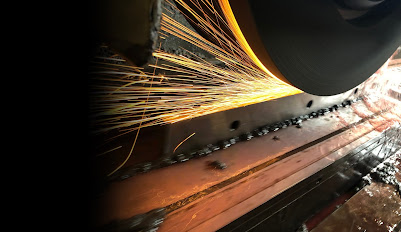Everything Essential You Need to Know About Knife Sharpening
All knives get dull with time. If you are a chef, butcher, or camper, hiring timely a qualified knife sharpening service can keep your tools in pristine condition. Dull knives are risky. If you prefer getting even slices of meat or vegetables and prevent a trip to the ER for stitches, you must know everything about knife sharpening.
Essential Things You Need To Know About Knife Sharpening
Why It Is Necessary
A dull knife requires more force to cut through food and stuff that risks your loss of grip. Whether you are sawing through beef tenderloins, chiffonading fresh basil for a garnish, or cutting ropes for camping without a sharp knife, you won't get precise cuts. It hampers your quality of work. Therefore, you must engage an expert knife sharpening service to keep your reputation sound.
Types of Knife Sharpeners
There are many kinds of knife sharpeners - from steel to stone to sharpen your knives. Each of them serves a specific purpose. Regardless of the method, sharp both sides of your blade at an optimal angle (10 degrees for knives up to 6 inches long and 15 to 20 degrees for longer ones) against the surface for perfect honing.
● Steel Sharpeners
It is best for the everyday maintenance of knives. If it's already dull, these sharpeners are of no use.
● Sharpening Stone
It is best for sharpening significantly dull knives. But it takes precise skill and a lot of time to do it.
● Ceramic Plate
In the absence of steel or stone sharpeners, it's the next best sharpener for knife sharpening.
● Electric/Handheld Knife Sharpeners
It is faster than stone sharpeners. But it requires skill to use it, and it deteriorates your knife health in the long run. If you have spent several hundred dollars on a top-quality knife, do not risk using it on them.
● Professional Knife Sharpening Service
Your local knife sharpening specialist is an excellent resource if you don't own a knife sharpener. Chefs mostly rely on hiring a qualified knife sharpening service for precise knife sharpening, especially for serrated and scalloped knives.
How to Know When to Sharp Your Knife
Rub your thumb against the edge of your knife to check its sharpness. If you need better proof, do a tomato test or paper test.
● Pick a ripe tomato and try slicing it. If your knife slides easily through its skin, then you know your knife is quite sharp.
● If you don't have a tomato, try slicing your knife through the entire piece of paper. If it cuts precisely, your know your knife is sharp.
Conclusion
You can keep your knife sharp longer by storing it in a knife block instead of a drawer with other spoons. Avoid putting it in the dishwasher and always use the correct knife sharpener based on your sharpening needs. If you are not confident about your knife sharpening skills, hire a professional for the task.





Comments
Post a Comment